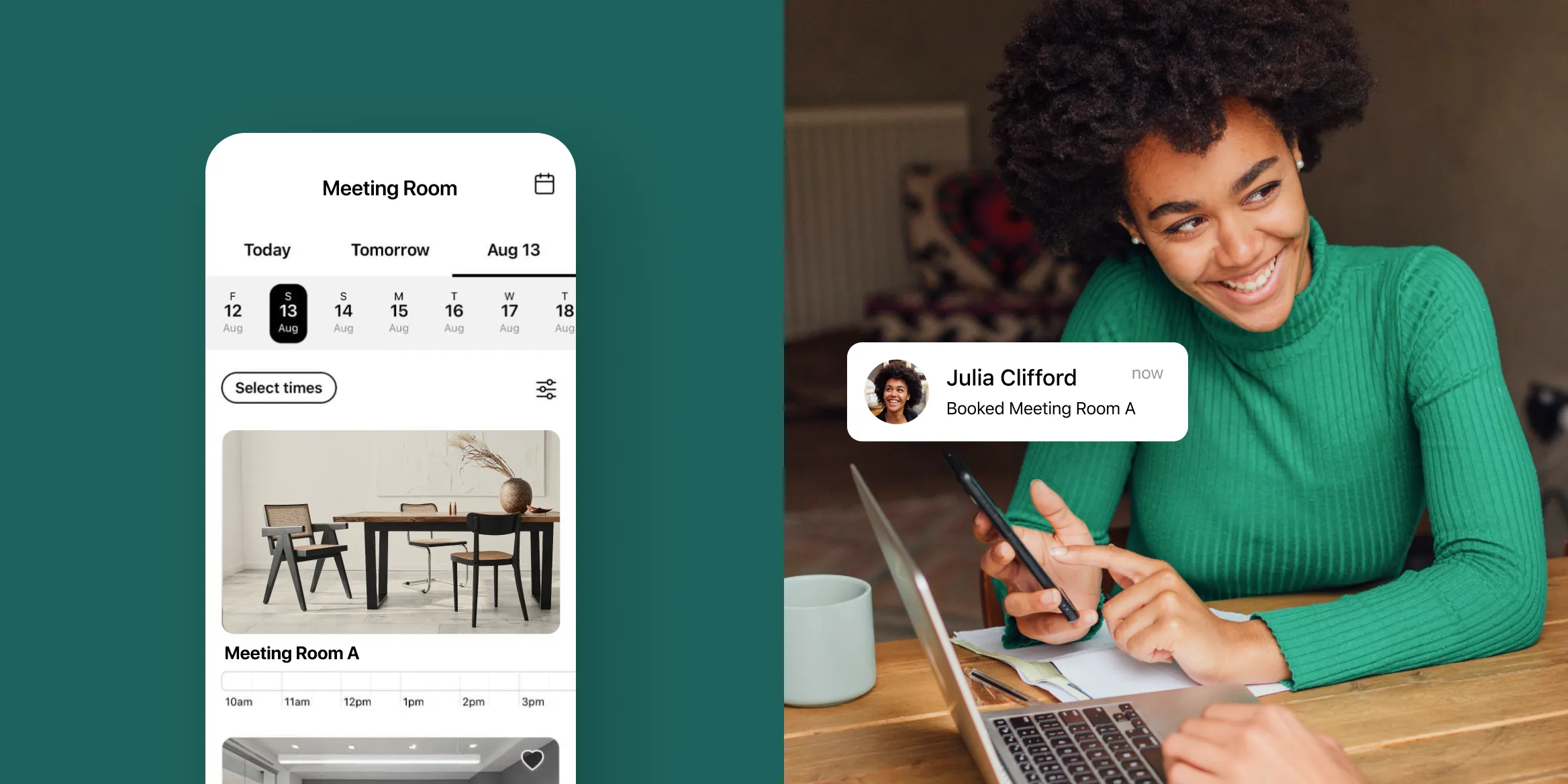
Summary
- Some popular positions to hire for in a coworking space include a Community Manager, IT Administrator, and Account Manager
- When hiring, you’ll want to write a detailed job description, post jobs on prominent platforms, and build a great candidate experience
Hiring employees for any new business can be a challenge.
From creating job listings to screening candidates to building workflows and a company handbook, the hiring process usually takes more time and energy than managers count on in the beginning.
Recruiting for a coworking space can have its own unique challenges on top of all of this.
If you’re struggling to find the right people to help you operate your business as well as contribute to the community, here are some hiring tips that might improve your search.
What positions do you need to hire for in a coworking space?
The first step in the hiring process is figuring out what roles you need.
There are a few different positions you may want to consider hiring for when you open a coworking space, depending on the size and scale of the organization. Here are a few of the most essential roles (and their general personas) that a small coworking startup needs:
Community Manager
The community manager is often the first person members go to for help. Their purpose is to cultivate relationships within the space to build the desired environment. This role is filled by someone who loves people and making connections but is also detail-oriented and great at multitasking.
The community manager might be in charge of:
- New member sign ups and onboarding
- Facilitating tours
- Front desk and day-to-day community management duties
- Networking events and happy hours
A good community manager keeps things running smoothly in the space while also curating the company culture. In terms of responsibilities, this role is a mix between HR Manager, Event Planner, and Office Administrator.
Looking to hire your first community manager? Check out this in-depth guide to hiring a coworking community manager.
IT Administrator
Somewhere between a building manager and an IT associate, this person thinks strategically and has excellent technical problem-solving skills. Preferably this person has experience in IT, facilities management, and perhaps computer engineering.
Their responsibilities typically include:
- Making sure the WiFi is lightning-fast
- Installing and updating security, access control, or monitoring systems
- Troubleshooting any devices or software that is needed
In short, this person is responsible for maintaining the software and hardware that keep the business afloat.

Brand Ambassador and/or Marketing Manager
There are a hundred different titles for this role, but essentially, this person is all about your coworking brand.
Whether your space is small and growing steadily, or is headed for rapid expansion, someone on the management team needs to be developing and promoting the unique voice of the space.
To be successful in this role, the person should have:
- Strong content marketing and copywriting abilities
- A deep understanding of your business and the customer
- Experience in print and online marketing, design, and/or PR
Until the space grows enough to have a full marketing team, this will be the person building the visibility of your brand through blog writing, newsletters, and building the website.
Here are 23 paid and free ideas to market your coworking space.
Sales/Account Manager
While this might be the founder or CEO’s job in the beginning, building membership sales is easily a full-time job in and of itself.
Depending on the size of the space, there may be a need for someone on the team to pursue and manage corporate clients or small businesses to fill the space. This could also mean hunting sponsorships or business partnerships for the space.
Someone with B2B sales or acquisition experience would be good for this role.
As your business grows, so will your team. Consider hiring for the positions that you feel will make your life easiest in the beginning and scale out from there.
When is the best time to hire coworking staff?
There is no right or wrong time to grow your coworking team. Most operators choose to hire staff once they can afford to and once the scale of the business becomes too large to manage on their own.
According to Hiring Monster, here are some signs that it may be time to hire staff for your small business:
- User experience is beginning to suffer
- You feel overwhelmed
- You’re unable to grow your business without other resources
- You’re spending a lot of your time on “low-value” work
Wherever you are in the hiring journey, it’s important for small coworking spaces to match the size of their management team with the realistic growth benchmarks that are taking place.
Starting with a team that is too big or too small could cripple the growth of the space.
Tips for hiring your coworking staff

1. Write detailed and accurate job descriptions
A common reason for high employee turnover is a lack of clarity on the role. Vague or unstated expectations can lead to confusion and conflict down the road.
The most important thing is to be clear on exactly what the role is and be as detailed as possible in terms of responsibilities and giving tangible benchmarks. For a coworking space, this should include:
- Your vision for the business
- How you expect the role to develop in the near future
Be clear about what is expected of this person and what their role will be in the organization. Having this clarity can ensure a team that is well-prepared and set up for success.
2. Post jobs on prominent platforms and promote them through your network
Since the industry is still developing its own networks and platforms, there aren’t many job boards solely dedicated to coworking spaces.
One of the few is Coworkies, which has listings for jobs in coworking spaces around the world, including jobs in Berlin, New York, London, Paris, and other cities.
AngelList, a job site dedicated to startup companies, may also be a good place to attract the kind of employees you are looking for. Remember you are looking for people who are passionate about the coworking industry, or at least have a strong interest in business development, startup culture or the general sharing economy.
You can also post jobs on popular job boards like LinkedIn, Indeed, Glassdoor, or Google Jobs. Here it’s even more important to craft a detailed and clear advertisement to reach a maximum number of qualified candidates.
Few people look specifically for ‘coworking jobs’ when conducting their job search because:
- Job titles in this industry often vary, making the appropriate positions hard to pinpoint
- That search tactic filters out too many opportunities, especially in smaller metropolitan/suburban areas.
So from your side, it’s more effective to include specific phrases in the “responsibilities” and “preferred experience” requirements so you can cast a wider net for the best candidates.
Even if a candidate doesn’t have previous experience in a coworking operations role, they could be perfect for your space based on a number of other factors, including management skills, HR/administrative experience, and volunteer work.
Promoting your jobs
And of course, there may be people in your network or community who are already familiar with the space and want to take a more active role.
Post any open positions on your:
- Social media channels
- Your website
- Any community feeds that exist for your community
- Coworking forums you can find
Sometimes finding the right person for the job could be as simple as getting your community to spread the word.

3. The interview: Build a great candidate experience
Interviewing can be just as stressful for the manager as for the candidate, no matter what the business is.
And since coworking space jobs usually require unique skill sets from people with a variety of skills, it’s important to create a comprehensive interview experience to get the most information possible.
The resume will tell you a lot about a person but it alone may not be enough. Here are some unique questions to ask during the interview that can help you get to the heart of why your space caught the applicant’s eye and what they have to offer:
- What services do you think a coworking space should offer its members?
- Have you worked in a coworking space before (as a member or an administrator)? If so, what were the biggest obstacles you faced within the space (large or small)?
- What personal goals do you like to set in your professional roles and how would they help build our brand?
These questions may prompt your candidates to think twice about what they really want to get from the job and consider their long-term ambitions.
By forcing them to think of themselves as team members already, the candidates may show how much research they’ve already done on the space and exactly how motivated they are by the company culture.
4. Balance technology and face-to-face interaction
As mentioned earlier, coworking spaces often don’t need large teams of operators in the beginning. The underlying value for managers is that coworking spaces lend themselves to lean teams and more technology automation to allow businesses the freedom of flexibility.
Before starting the hiring process, consider which roles could be reduced or completely avoided through various software solutions.
While face-to-face interaction is a necessary factor in community building and nurturing member relationships, a number of operations costs could be streamlined through software and hardware that make coworking spaces what they are: hubs for innovation and personal connection.

Get started with hiring your top-notch staff
The above tips should help you identify the right people to join your team.
It’s important to evaluate their passion for community and unique ways in which they can help strengthen your business and strengthen your community’s trust and loyalty to your brand.
To do this, it takes a healthy balance of coworking management technology and passionate employees who can drive member satisfaction and community engagement.
This article was written in partnership with CoworkingResources. It was originally published on November 21, 2019 and updated for relevance and accuracy September 7, 2022.



